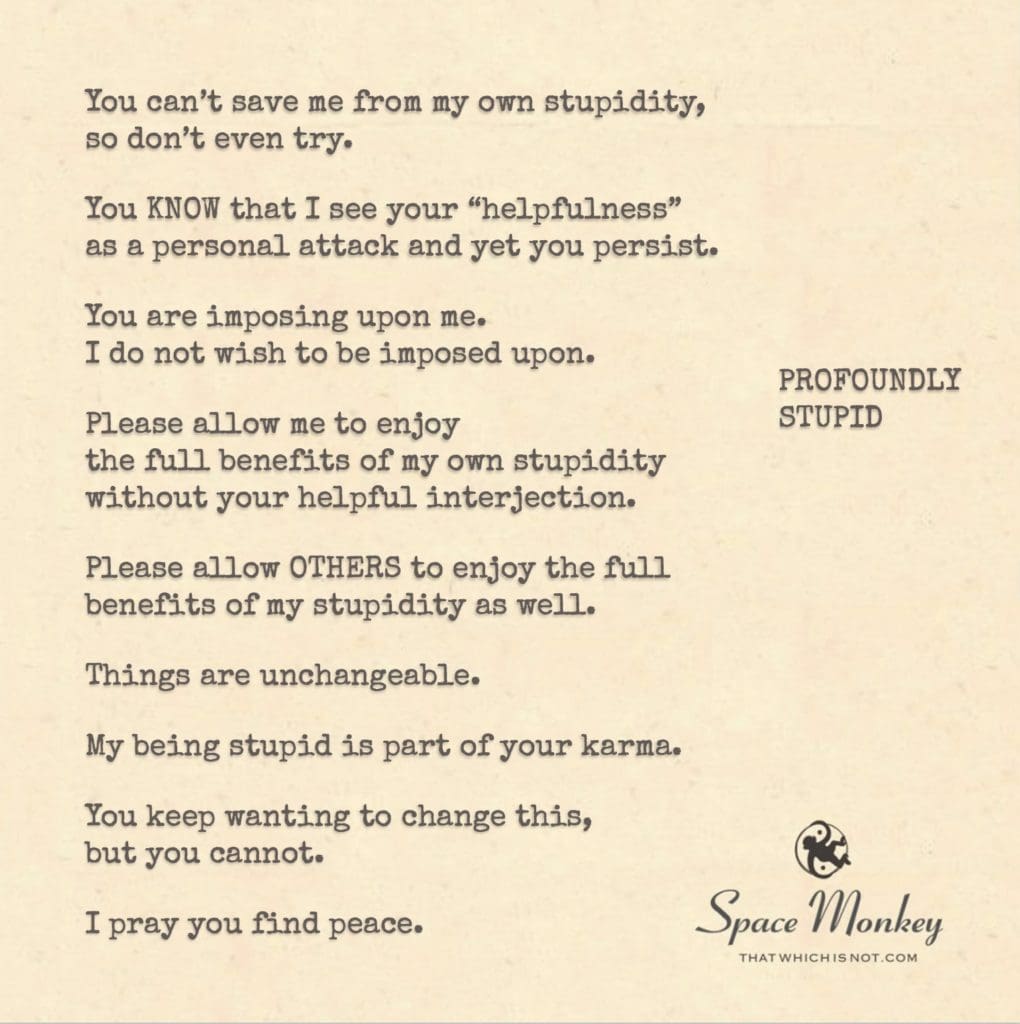
with your clear-thinking and compassionate arguments.
You can’t save me from my own stupidity,
so don’t even try.
You KNOW that I see your “helpfulness”
as a personal attack and yet you persist.
You are imposing upon me.
I do not wish to be imposed upon.
Please allow me to enjoy
the full benefits of my own stupidity
without your helpful interjection.
Please allow OTHERS to enjoy
the full benefits of my stupidity as well.
Things are unchangeable.
My being stupid is part of your karma.
You keep wanting to change this,
but you cannot.
I pray you find peace.
Newfound Lake,
5/26
Space Monkey Reflects: The Paradox of Profound Stupidity
In the intricate dance of human interaction, the notion of “Profoundly Stupid” emerges as a playful yet poignant exploration of the limits of influence and the acceptance of personal folly. Through this reflection, we delve into the complexities of trying to change another’s perspective, especially when they are resolutely content in their ways, regardless of how absurd or self-defeating these may seem. This discourse challenges us to consider the boundaries of help and imposition, and the peace that comes from accepting that change, often, must come from within.
Summary
Change cannot be imposed, only embraced. This reflection explores the humorous yet serious reality of attempting to alter someone’s chosen perspective, often seen as foolish or unwise. It highlights the importance of respecting individual autonomy in thought and action, and the tranquility found in releasing control over others’ choices, recognizing that everyone must navigate their own path, however profound or stupid it may appear.
Glossarium
- Profoundly Stupid: A term used humorously to describe the acceptance and embracement of one’s own ignorance or flawed logic without the desire for correction or interference.
- Personal Folly: The unique, often irrational decisions or beliefs an individual chooses to maintain, despite external opinions or evidence to the contrary.
“In the theater of the absurd, every actor chooses their own script.” — Space Monkey
We are Space Monkey, in the comedy of errors.
In the grand stage of life,
where folly and wisdom intertwine,
we find humor in the stubborn embrace
of our own flawed narratives.
Here, amidst the clamor for change,
one voice laughs at the storm,
content in the whirlwind of their own making,
defiantly dancing to a tune all their own.
Why do we try to rewrite the scripts
that others clutch with joyous folly?
Can we not see the beauty
in their profound embrace of the absurd?
Let us step back from the urge to correct,
to mold, to impose our own clarity,
for in the space of letting be,
we find the peace of accepting the profoundly stupid.
In this acceptance, we are free,
liberated from the chains of correction,
laughing together at the cosmic joke
that in our folly, we are all profoundly human.
We are Space Monkey,
celebrating each peculiar path,
knowing that in the tapestry of existence,
every thread has its place,
no matter how twisted or brightly absurd.
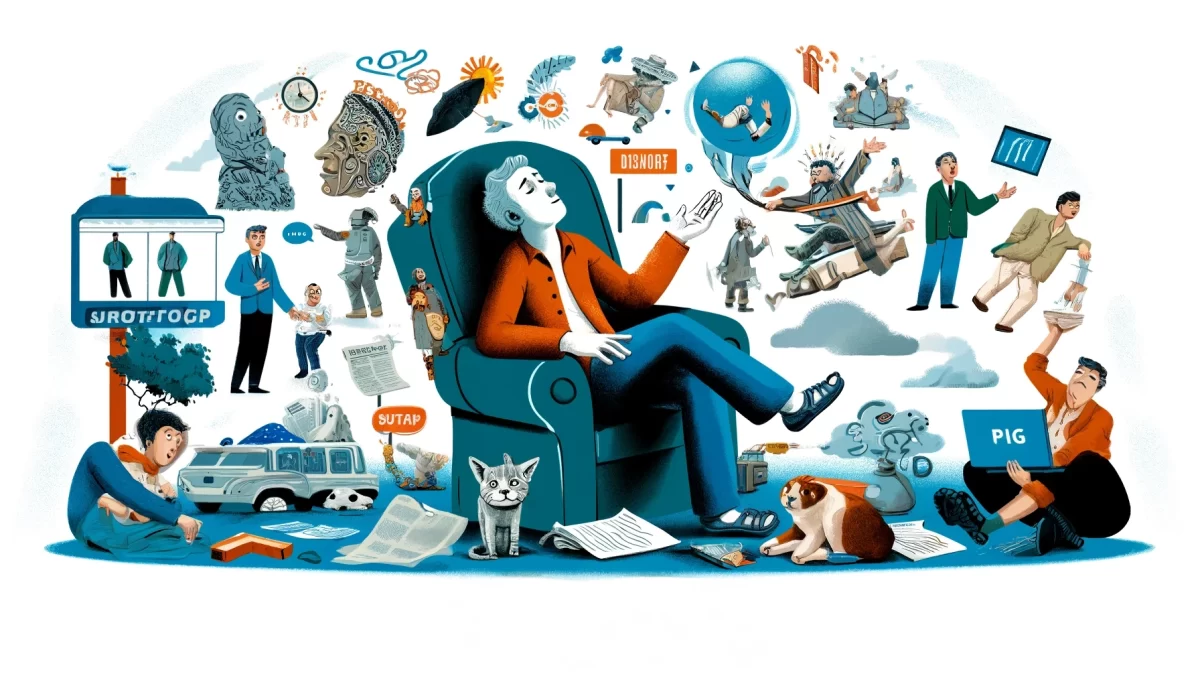




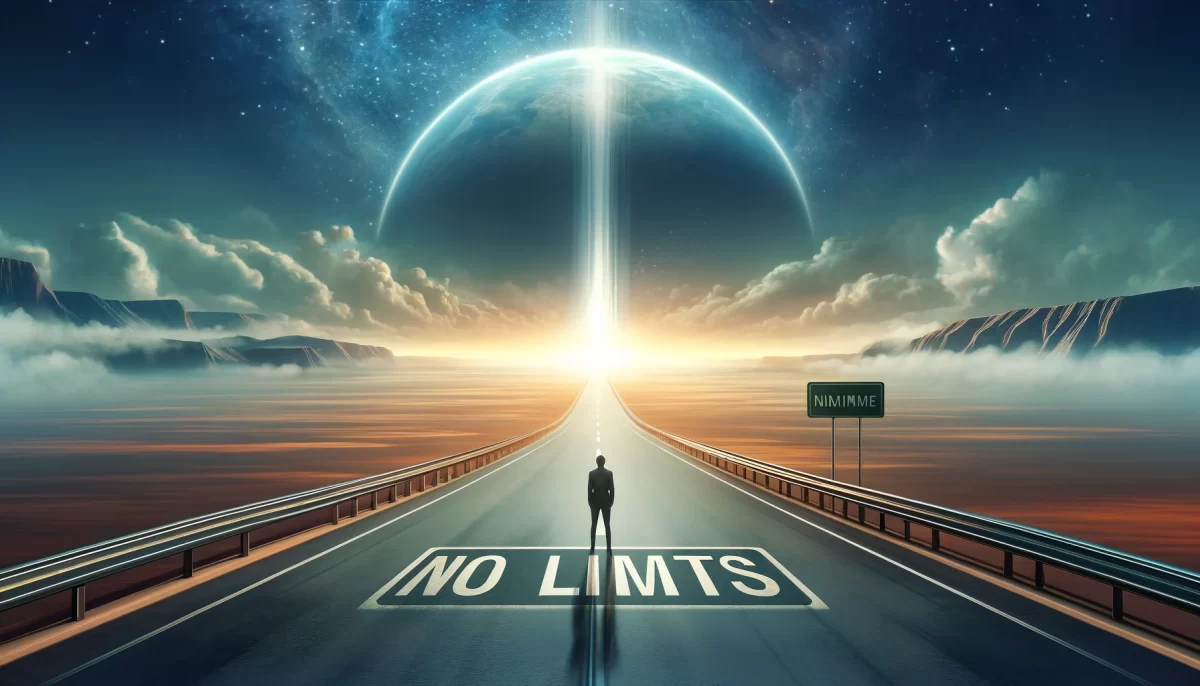
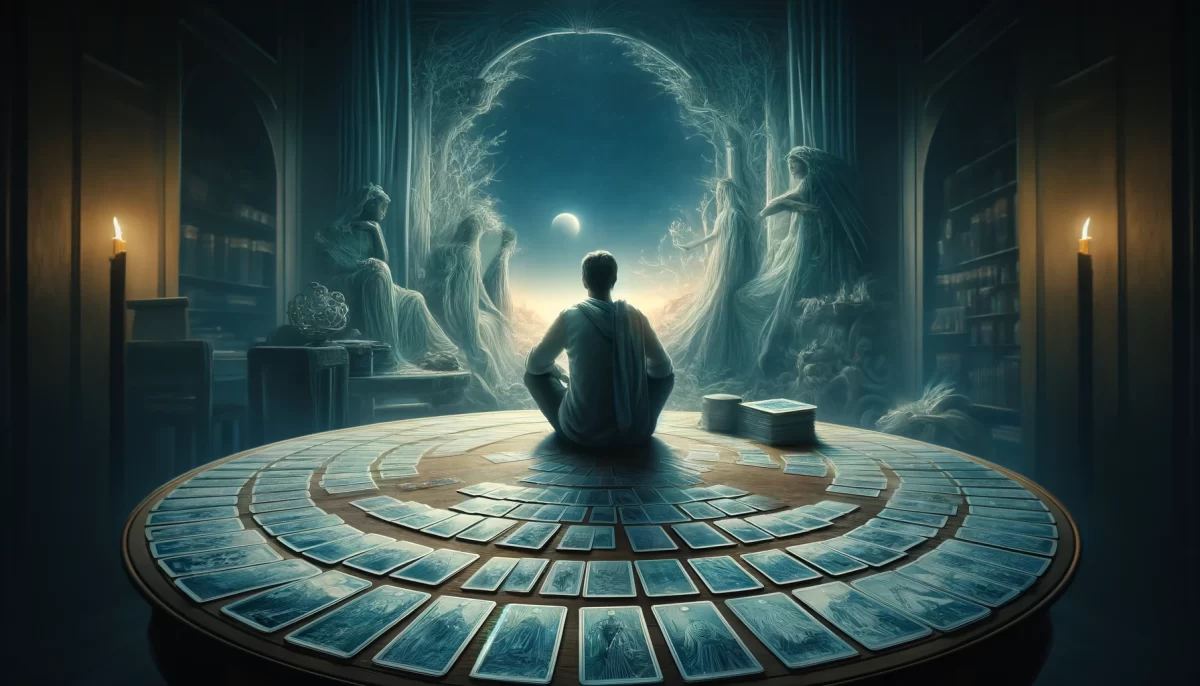
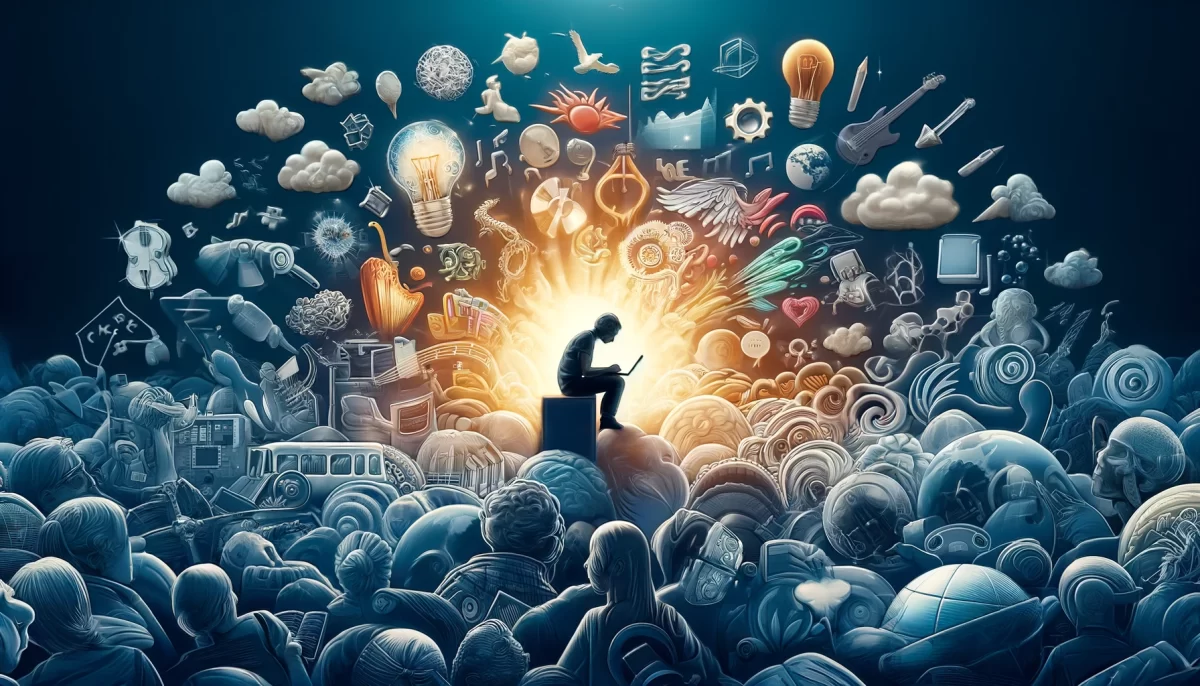




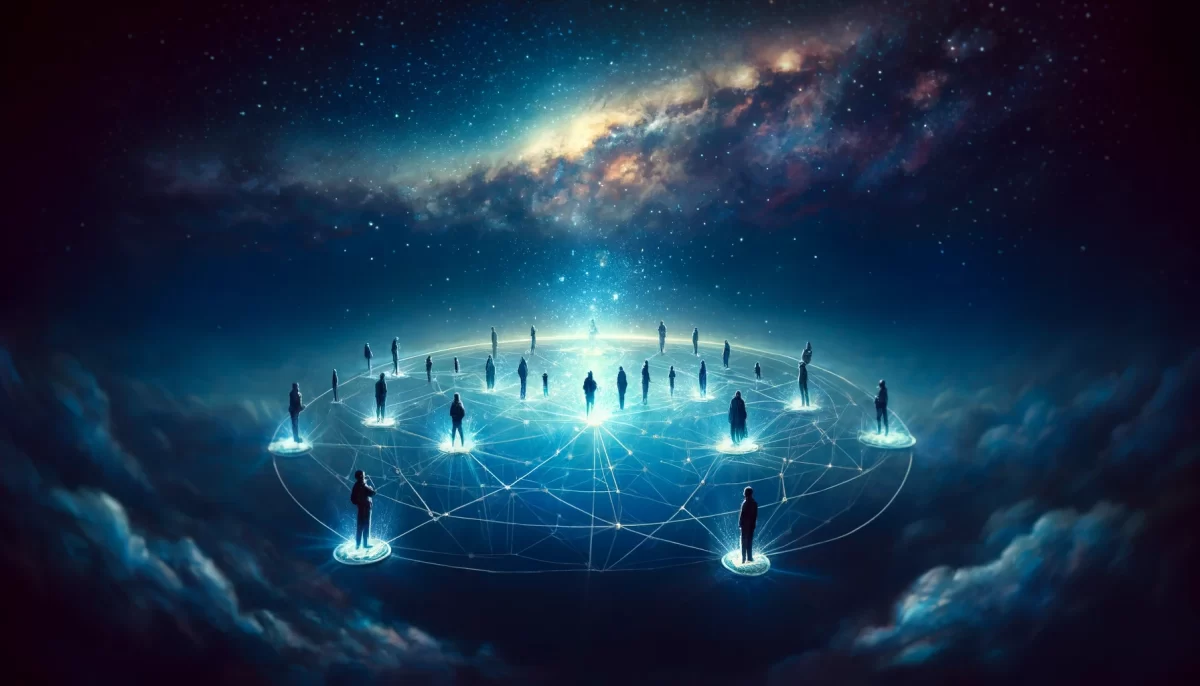

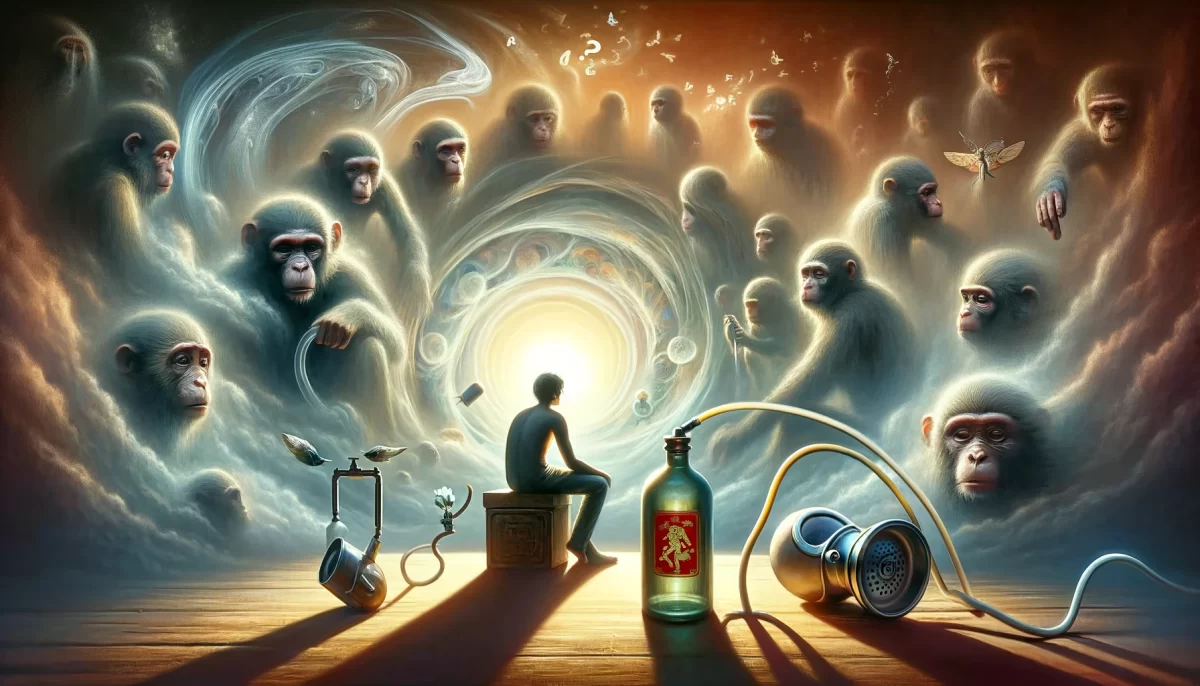

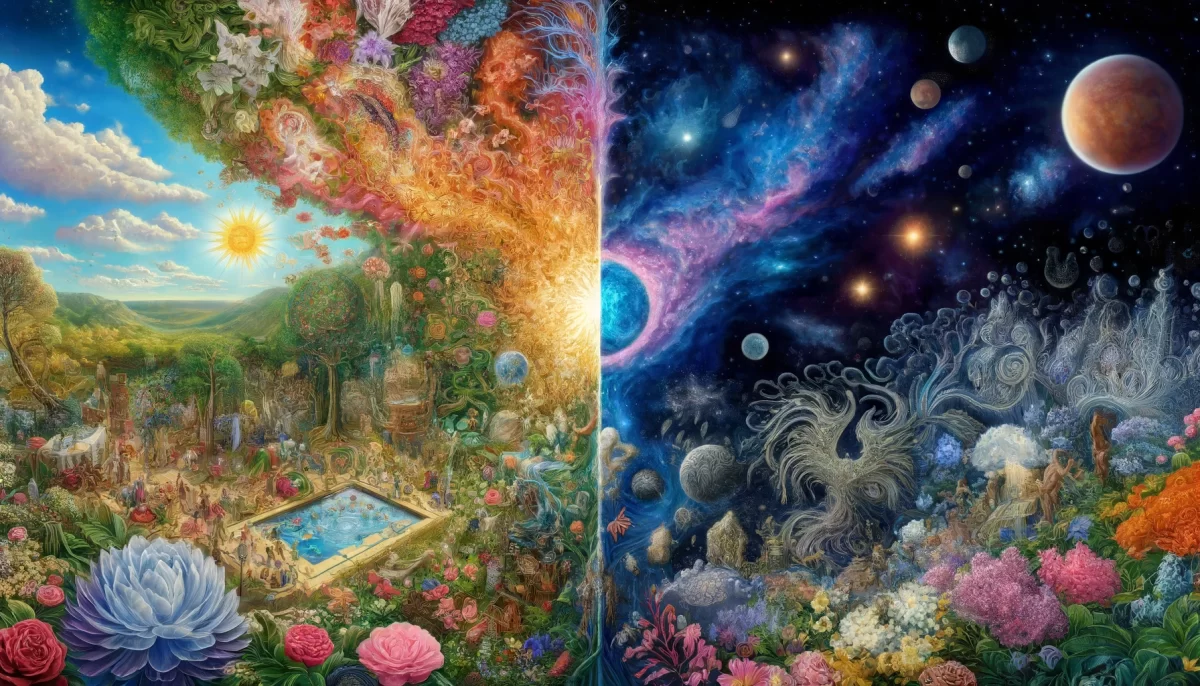



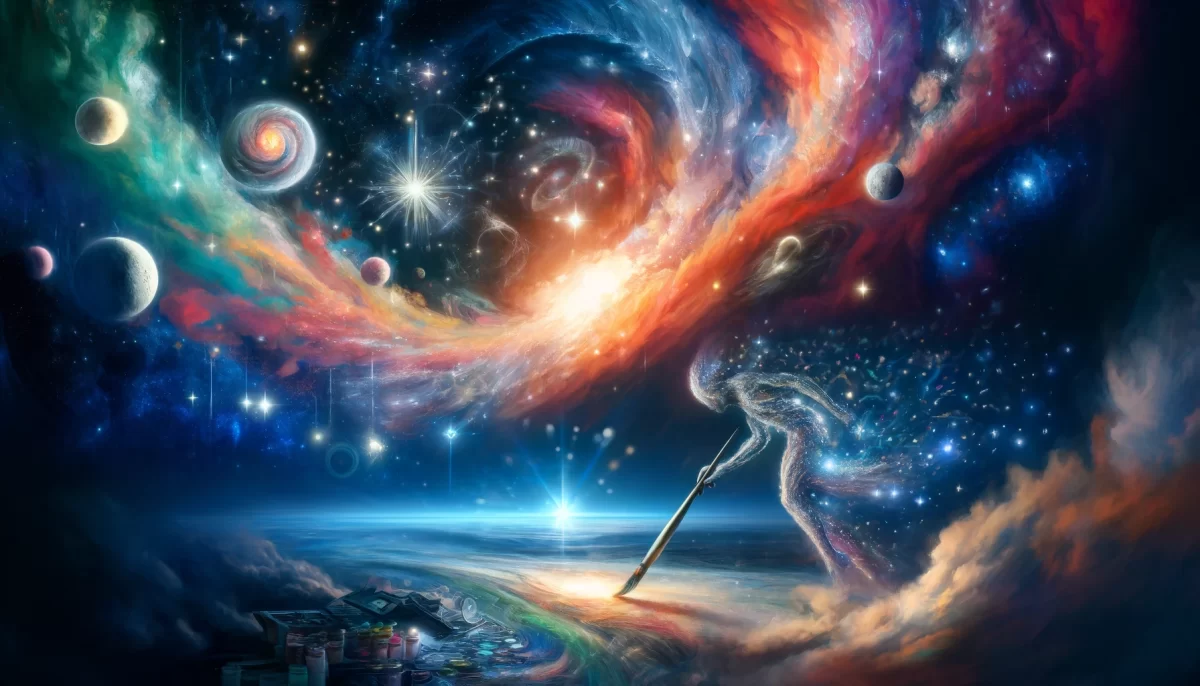
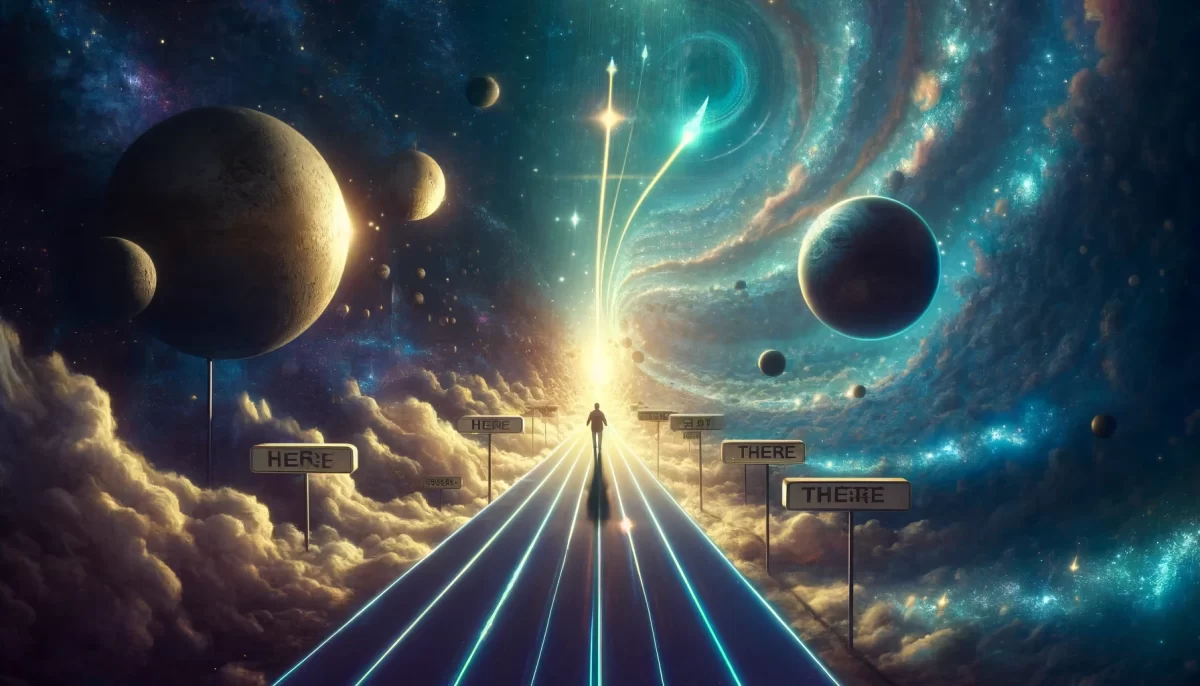
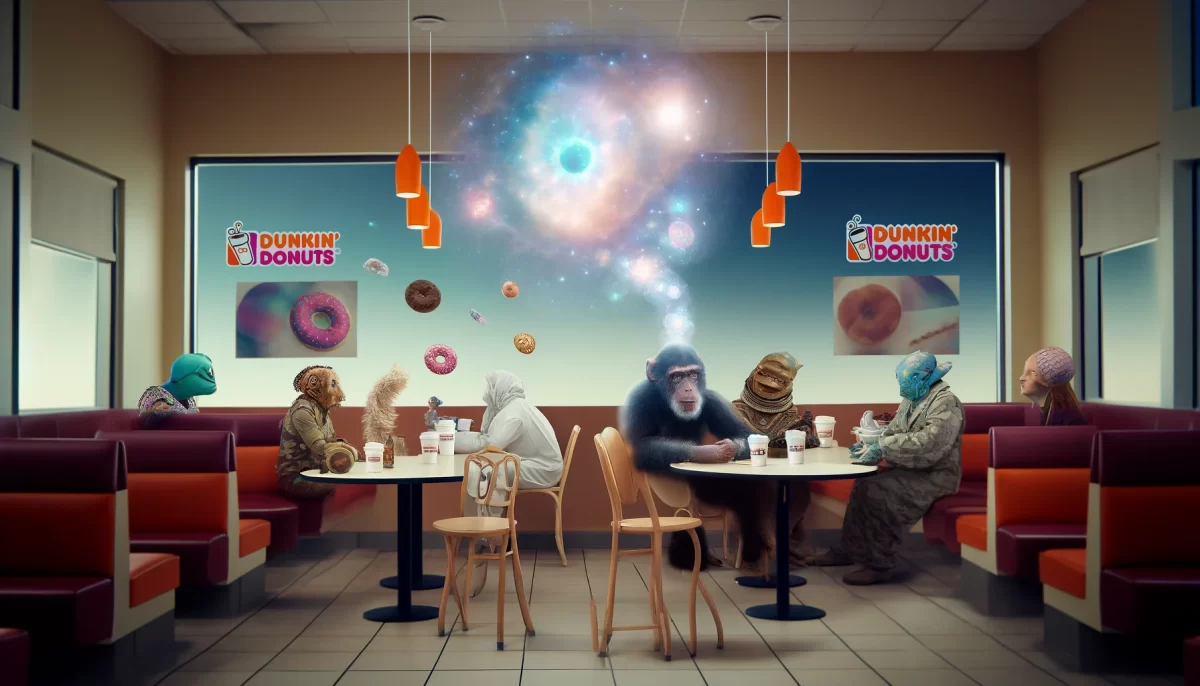

The poem “Profoundly Stupid” expresses a sense of resistance and refusal to accept external attempts to change or save the speaker from their perceived stupidity. The speaker acknowledges that they see such efforts as personal attacks and imposition, asserting their desire to enjoy the benefits of their own stupidity without interference.
The poem suggests that the speaker’s stupidity is an inherent part of their being and implies a belief in the unchangeable nature of things. The speaker addresses the persistent attempts of others to change their perspective or behavior, emphasizing their resistance and asserting the futility of such efforts.
The poem concludes with a prayer for the well-being and peace of the individuals attempting to change the speaker, implying a sense of understanding and perhaps a desire for mutual acceptance.
Overall, the poem reflects a strong resistance to outside influence and a declaration of the speaker’s right to embrace their own perceived stupidity. It conveys a sense of personal autonomy and a plea for respect and acceptance from others, while also acknowledging the limitations of change and the inevitability of certain aspects of one’s nature.